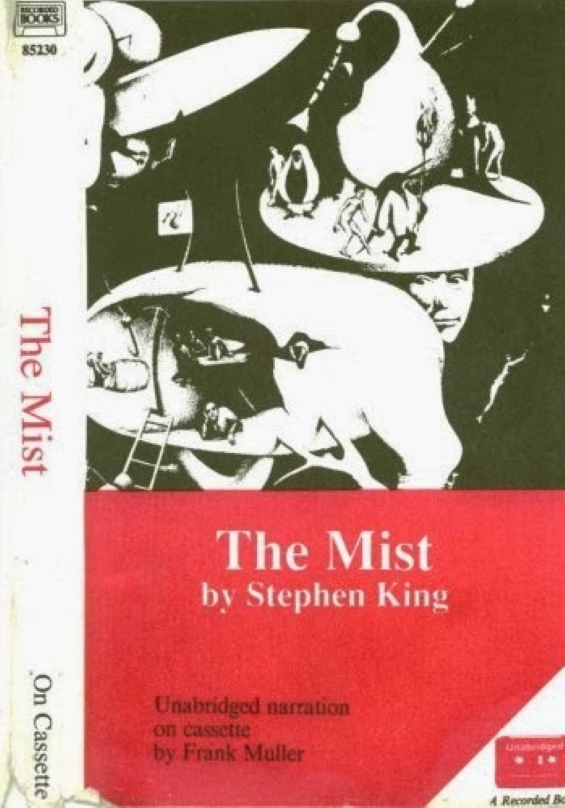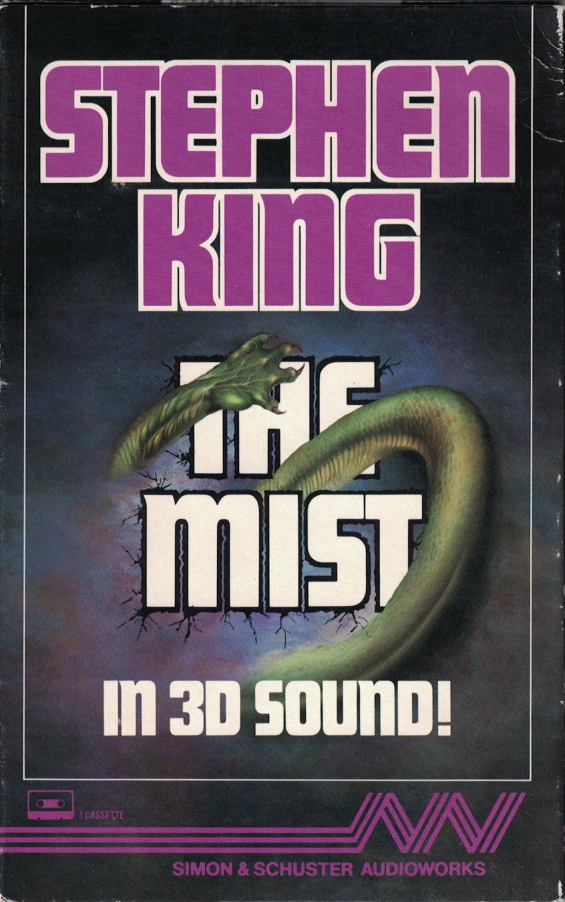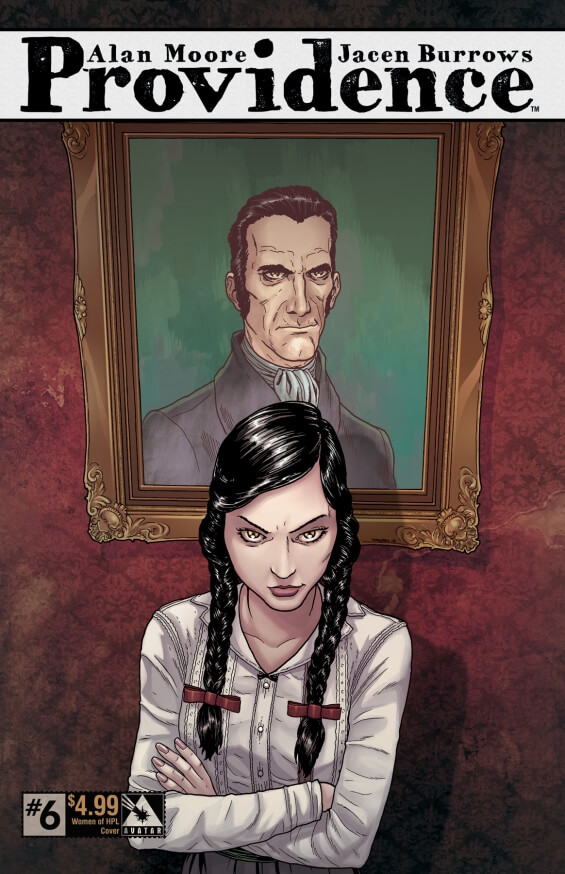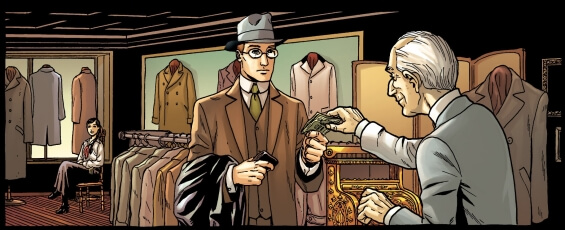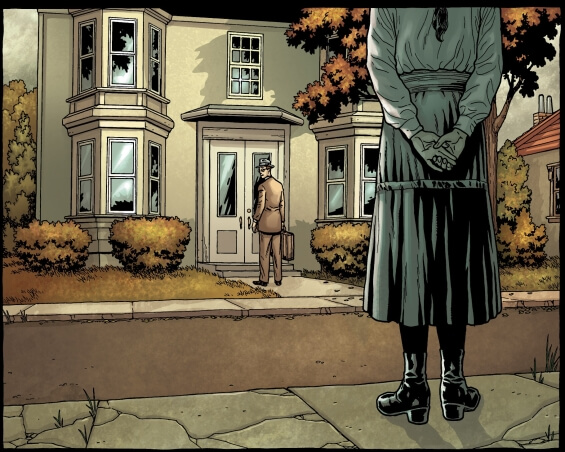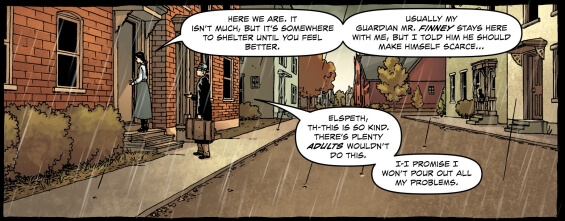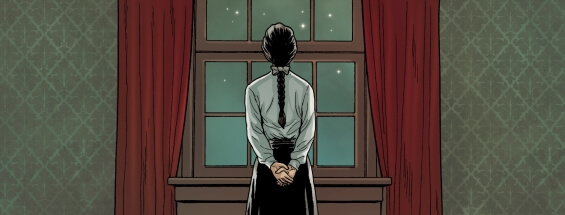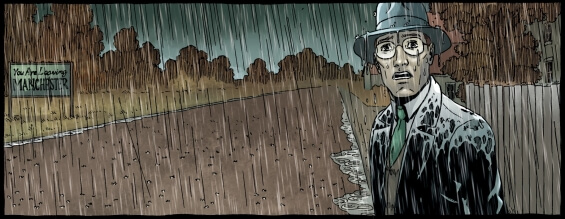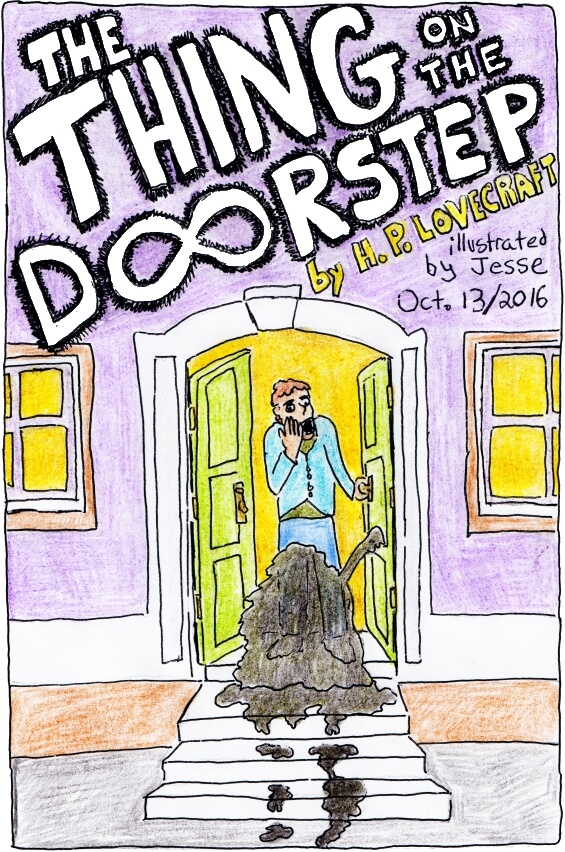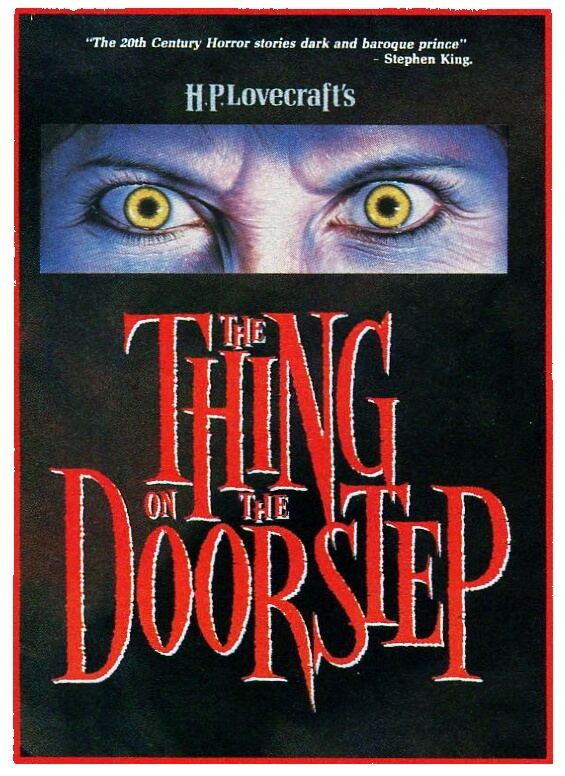Jesse, Evan Lampe, Cora Buhlert, and Terence Blake talk about The Colorado Kid by Stephen King
Talked about on today’s show:
Terence without a story, no story here, short novel from Hard Case Crime, pretty slight, the narrator, this fake Maine accent, a little hard to understand things here and there, you get used to it, the name of the owner of the restaurant, some of the beginning, Jack Ruby vs. Jack Moody, JFK is in here, a theme, a throughline between the stealing of the money and the keeping of the article, it’s our story, it’s not for the people from away, including the US government, everybody does it, not nationalistic, localistic, a political point, what these islanders are like, such places, lonely and weird, late 1990s, drive up from Boston to the Canadian border, Acadia national park, a rental car, an ice cream parlour, a cinema, and a gas station, we don’t like strangers here, local teenagers were hanging out, staring at us, talking German, the two strange women, priceless looks, an old A-Team episode, when you read Stephen King, exaggerates this aspect of it, condensed, a love letter to Maine, Pet Semetary, Derry, know the town’s secrets, talking to each other and playing cards, in the Lovecraftian sense, you gotta remember it, the illustrated version came out in 2019, the disc break, when it first came out, a really big deal, used to sell Hard Case Crime, no. 13, the biggest living author up to that point, when Stephen King hit, drew attention, Cora retweeted an article, a paid advertisement, affiliate links, Holly, whatever that means, in terms of sales, Charles Ardai, Joyland, Crichton ones, crossover appeal, Later, a thematic sequel to The Body, on a publicity tour, host of a TV show, NPR, hardboiled, noir, crime encrusted filthy books, Ardai bent the rules, an introduction to the 2019 publication, The Birth And Rebirth Of The Colorado Kid by Charles Ardai, revive pulp fiction, gorgeous dames in torn negligee, grab you by the throat, someone lay bleeding in the gutter, about the same as a movie ticket, bookstore, drugstore, a quixotic plan, half a century earlier, there was drinking involved, David Dodge, Day Keene, Wade Miller, maybe there’s a well known writer out there, write us a blurb, gone on record, John D. MacDonald, Lawrence Block, Richard Stark, the great Donald E. Westlake, I understand completely, I tried to sound cool, it would contain a mystery, a boxing story, a western, it presents a hard case, the mystery of the unanswerable, the classical mystery tradition, Dashiell Hammett’s The Maltese Falcon, Flitcraft, vanished like a fist when you open your hand, if that’s not a noir story…, a pretty weirdest book, an experiment, a thought experiment, a philosophical parable, metafiction, trynna make some points, teased, this is a fantasy book, continue their legacy, if she doesn’t go on to the New York Times, I’d like this to be true, small towns have newspapers, county paper, the Tri-Cities, the last issue of the last newspaper went online, its owned by a corporation, required by law ads, not doing news anymore, before the internet killed off these smaller newspapers, The Province (newspaper), The Vancouver Sun, a corporation asking for donations, this is a fantasy world, he has a fantasy setup about how things will work, there’s no Walmart here, wherever Mooselick is now, King Soopers, things have changed, corporate control, corporate extraction, the earlier setting in the 80s, he’s almost a regional writer, he’s been to California, what percentage are outside of Maine?, he’s not a city guy either, Deer Isle, Maine, other island stories, Dolores Claibourne, a zombie apocalypse, strangers experience, the island on the show called Wings [Nantucket], you’re gonna make it Stephie, passing the torch, making a story out of nothing, the story is there’s no story here, to make it a story, story construction, a central mystery, one of the two interchangeable, more than a single gunner, that’s Stephen King for you, can’t even separate them from each other or King, the girl is pretty well done, a fantasy, she’s from Away, write about hayrides, we’re gonna last years, a little fastforward, the really old one, skip to 2023, she sold the paper to a corporation has kids and lives in Ohio, is Jesse being too cynical here?, school is in, not supposed to be solvable by the reader, Jean Paul Sartre’s Nausea, waves don’t form a story, a thing without a story, an event without a story, a philosophical education, resistant to paradigms you bring to bear, even if you fail all the time, all the stories published in the newspaper are lies, a beginning a middle and an end, the meta-level, an inversion of values, the insular mentality, closed minds, they don’t like strangers, big city people, Heidegger used to say, even if he was a Nazi, in closer contact with Being, the real people in touch with what life is, inculcating existential philosophy, independently constructed a theory of story, the school of problems, is this deliberate?, what Evan said, what makes a book memorable, this story about story, mysterious lights, a story about how stories are told, real life events are turned into a story (or not), the other cases, weird lights, UFOs, church picnic poisoning, dead boat, a likely story, some kind of weird crime that was never solved, an unsolved murder, 22 years, Picnic At Hanging Rock (1975), the art in the book, the last image of the story, Stephie looking out of the view, there needs to be a sexy lady, a newspaper folded over the rail, Vinceteague, Chincoteague, wild horses, the story goes, a Spanish shipwreck, annual capture of the herd, sold to rich people, Cora’s experience, intruding on their local haunts, a defensive look, you’re a tourist, curiosity, you’ve just walked into their living room, boxes full of board games, a community center, we can’t blame them for the weird feelings, take your money and monetize, a generous tip, need two old guys who know the score, like they see it go round like it’s in a dryer, he’s gonna give em a book, bringing a book to our lowly new publication, Lawrence Block is a really great writer, nobody cares, everybody knows the name, everybody can act like him, that’s the fantasy, supporting local causes all over Maine, patriotism on a local level, Walter Gibson, he didn’t move away, he’s made it a virtue too, this is how one ought to be, 31,000 people, a Lovecraft idea, you can write from anywhere, I don’t fit in New York, August Derleth, those regional things your writing about Wisconsin, Clark Ashton Smith, Robert E. Howard, Cross Plains, [City Of The Singing Flame], set on a hike, it’s for you, you’re local now, that’s the story, why didn’t they give him a story, they just take his money, right Evan?, I guess, it’s a response to the idea that stories must progress to a point, to critics, why is that there?, why is IT 1,000 pages long, meditating on that, letting the story breathe and be what it is, that’s the change, bring everyone to the parlour, why they kept it secret, Nero Wolfe isn’t going to show up, Jesse’s week theory: it was suicide, why would he do it in Maine?, the geographical solution, people running away, the physical limit of the border of the country, maybe his wallet was stolen, just like the food out of his hand, insure you choke to death and have a brain hemorrhage, old guy detectives, the money gets to the right hands, Stephen King likes moms, trying to help moms out, a less important gender for child raising, like an old gay couple, help out as best they can, published in all the papers in Colorado, desperate old men all over the United States, Hancock Lumber, a pay paper?, free weekly, no longer, two on Sunday, newspapers called out, New York Times, Boston Globe, Bangor Daily News, if done in realtime, restaurant to the seaside newspaper department, giant printing machine, go get a muffin, a pee, some coke, pee break, retro flashback to the future, he died six months later, obituary for the really old guy, 1915-2005?, she’s still there, smelling the seaweed and the fish, front page obituary, small town newspapers, editorial content, usually on the front page, local journalists running around, small arts events, festivals, local sport, shooting competition, report about Hugo winners, desperate for content, dine out on your story, a young woman, a man in his forties, the Russian coin, the red herring, a Russian sleeper agent, The Americans, told to come to Maine, a commercial flight, a very good theory, why do you carry evidence you’re a Russian around?, 10 ruble coins, a plot point or not, a sleeper agent from an alternate earth, he’s from another dimension, supernatural elements, he can’t help it, why not?, the lights, the author said it was extraterrestrials, Rendezvous With Rama sequels, Mary Celeste, the Doctor Who version: The Horror At Fang Rock, aliens landed in the ocean, Telefon (1977), the Soviet Union objected to the movie, the premise is that there’s been a purge going on in Soviet Russia, hardliners, trying to start WWIII, a detente, a Robert Frost poem, fugue state, suicide mission, Charles Bronson is a KGB agent with a perfect memory, when they die, this guy died in 1922, these are fake people, the birth certificate of a dead kid, the suicide theory, how to fit all the pieces together, the gun in the hand pointing at the head, assassinated, a calling card, maybe he found it on the beach, perfectly constructed, because it’s a fiction story, some newspaper stories are completely fiction anyway, without having the tweet thread, a bad idea of what actually happened, Sherlock Holmes, getting the quotes wrong, a well constructed meta-story, characterization is immaculate, backstories of various people, the widow eating her meal and looking great, this island and its people, a mystery that can’t be solved, no obvious solution, the church picnic, The Shining, Stephen King’s explanation, telepathic powers, ghosts come to life, the story is terrific, his way of solving, psychic powers, so good at telling the story, a problem of madness, a psychic command to go to Maine, much more elaborate, a central character who ends up dead, goes to quite a length to justify a death to alleviate a problem, drinking himself, fucking around with his boss, hurting his kid, trying to do right, go live with the magical blackman in Florida, Murder She Wrote, Jessica Fletcher, Cabot Cove at Universal Studios, giving school, the coziness of the town, the judge, another graduate student, a CSI guy, local time colour, CSI being a good show, grounding it in the period of time, peak of its popularity, so many spinoffs, it’s realistic, super unrealistic, weird tiny clue, the reality is Mark Furman plants the glove at OJ’s house, the theory of the case, fuck it he’s guilty, told not to look in the bag, the underlying theme: it’s okay to cheat, that’s just a Stephen King move, desperately wants to be Stephen King, a descent attempt, one aspect, kids, boyscouts, body horror, The Troop, Dreamcatcher, a central ideology, lensing all his writing through, this is what I believe, the NPR series: This I Believe, Heinlein’s, we all cheat a little bit, it’s good to like our locals, the definitive Terence thing, when you’re an old many running a newspaper in Nice, fuck off and sell your paper, a smaller town, an island off the coast of Spain, Glory Road, nude island off the coast of France, nude island, the whole island is news, Île du Levant, naturist resort, gonna have to get into nudism, inside on an offset typewriter, wear big hats, prove that you’re not wearing a wire, East German nudism, lingering nudism, Wreck Beach, sunbathing garden, close to exhausting this very slim book, 3.5 hours, padded out reprint, 2005 afterword not in the audiobook, a real case of a woman in Maine who died and was never identified, unsolved and unsolvable, the phenomenon, people hate mysteries, the reason the police are there to solve crime, a collective will, find somebody to blame, who the victim is, teenage drug dealers, not a story, cold cases, years after, calls after all these years, crimes no one really cares about, some kind of theory, one of the big fictions, it’s the drug cartel, they’re so horrible, court cases, drug dealers are so bloody stupid, they’re amateurs, that’s not their business, unsolved without a story, two boys [Sebastian Burns and Atif Rafay], murder, awaiting extradition, France off the coast, upper peninsula of Michigan, the Point Roberts anomaly, [turns out Jesse is conflating two cases from the same period, the Sebastian Burns Atif Rafay case and Frederick Gilliland (who was tricked into Point Roberts), Jack The Ripper, still trying to solve, supernatural solutions, time travel, space alien from Star Trek, 150 year old, the Zodiac Killer, annoying people, the police were not fully corrupted, lazy bastards, pressuring people into confessing, Homicide: Life On The Streets, a bunch of people to kidnap the governor of Michigan, money, retarded, lonely, not reporting on stuff, unsolved cases in Germany, equivalent of a state governor, Switzerland, a famous hotel where other people have died, a famous press photograph, late 1980s, dressed in the bathtub, someone important, Mossad, the Iranians, a shitty terrible person, the official verdict was suicide, Seth Rich murder, no story here, perpetrator unknown, no one would do that, Salvador Dali would have killed himself like that, constantly screaming, this is of course locked, July 10, 2016, 4:20 am, a victim of attempted robbery, with lots of citations, leaked DNC emails in 2016, hacking the email accounts, quotation marks around that, Hillary Clinton had broken the rules, Donna Brazile, thumb drive, how fast can u download?, no good evidence, it’s always Russia, Mossad is pretty fucking active, if you talk about Seth Rich on youtube, we’re nit going to have this be a story, shot in the back, some political reason, die on a beach, the thing that’s being addressed here, making a connection between or fear of random seeming deaths and how being unsettled by death is, The Body, the point of that story, hit by a train, dead crow on the sidewalk, who did this?!, it only matters when it’s people, maybe it died of old age, I don’t need a story to make me feel better about it, hit by a car, our response to the fear of death, what he’s going for, the the dead kid on the beach is Stephen King, he’s 42, hit by a van, 1999, mentioned at the end of the audiobook, a little biography, making a story out of the story, now I feel satisfied, satisfied there was no explanation, not knowing the others, always broken up, bathroom or muffin, we can’t experience it as a framed story, jump back in time, circle back to the table, a TV show, Haven, an FBI agent, relationships, she has a relationship in this book, somewhere in Ohio, leaning up against a garbage can, a little essay by Brian Aldiss, what sticks in your memory from science fiction stories, inspire you later, the example of a mad robot on the Moon firing into the void, not a powerful enough image, he’s a blank slate, emotion, empathy, whatever, before they knew the story from the widow, in 20 years, a vague impression, sounds familiar, short, bought the book at an airport, these old guys, a young woman, sitting on the beach looking out at sea, the new cover has that, looking at the corpse, a girl with the tape recorder, Glen Orbik, nothing to do with the book, really, Holly, simply written, for the Hollywood Reporter, a familiar King protagonist, September 9, 2023, Stephen Colbert, latest book, quickly shot to number one, 2014’s Mr. Mercedes, If It Bleeds, Finders Keepers, $30, just $19 right now, on audiobook, narrated by King, The Gunslinger, online for free!, lit window, silhouetted windows, by today’s standards, an improvement over that, in the 1990s, 80s are great, Scribener’s reissuing, The Institute, Rolling Stone, I like her so much, go on with, what she was up to, supposed to be a walk on character, stole my heart, the supernatural realm, dealing with covid, covid-denier mom, eventually succumbing to the disease, wear a mask, get your vaccination that doesn’t work, mom, a time capsule, devour, emdash, all the familiar trappings, covid books, I’m not going to read that, unimaginably deprived, the book’s description, summon all her formidable, professors, the shopping section, to bookmark it, crime fiction roundup, I’m reading a Stephen King now, of course he’s up to this, very well written, King likes Gibney, 15 hours, Evan is looking forward to it, Fairy Tale was illustrated throughout, Gabriel Ba, yeah, yelling at Evan, how can you stand this shitlib?!, build up a whole narrative, fully embrace how awesome, as a thinker, his essays, his fiction writing, not extraordinary, Lester Del Rey hits the buttons, build a robot lady in their basement, what happens if humans uplift dogs and monkeys, character constructor, limited ideas, stepping on his dick, the lone gunman theory, he’s a good boy, he has to, the sex scenes for Cora, Vaush is gonna misinterpret, free publicity by denouncing it, why does Cora read The Guardian so much?, triggered, the news is so fuckin shitty, translate them, nothing Jesse needs to know about, a few episodes, didn’t need to think about it at all, license Stephen King something, like Foundation, getting sued by King, how many ongoing TV series, Castle Rock, the good one, not the quality, the sheer number, Netflix tv shows and Netflix movies never have sex scenes, foreign language, an American company, Jessica Jones had sex scenes, boobs?, Oppenheimer, HBO, Cinemax, in the 1990s, slightly less than pornography, sex in them just to have sex in it, titillation while watching a murder mystery, random sex scenes rammed in, Outlander, Foundation sex scene, dirty limericks, well shot, unAsimovian, how would Asimov take it?, Janet Asimov, Terminus is destroyed, ruined it for her, a symbol of the whole series, we’re destroying Asimov, taking Asimov back from Asimov, the format, interesting idea, you don’t have to watch it, Cora has made herself into a fan writer of this sort of shit, Terence is a glutton, Terence hates himself, Wheel Of Time is better, lowest common denominator, bad crime dramas, some SFF stuff, Star Trek, The X-Files, 30th anniversary, nothing to watch, interestingly quaint, corrupt but not in the way it really is, aliens, skeptical of the government, the official policy is aliens exist now, when are you gonna release the videos, space force, Time For My Stories (Chapo Trap House), peak of the American Empire, anxiety of decline, The Sopranos, plagued, watch old movies, watch Mission: Impossible original TV series, CIA competence niceness, overthrow their elections, not actual agents, very good competent, actor, strongman, electronics experts, model, patriotism, out to help people, works, well made, the music, the editing, cliffhanger stuff, they don’t get what Mission Impossible is, Miracle Mile (1988), Trombone nerd, WWIII, Los Angeles, Tangerine Dream cinematic universe, westerns, Jesse gives Terence too much homework, The Last Run (1971), car chase, working class detective, weird today, still really good, dutch without subtitles, Tangerine Dream, striking, online somewhere, William Friedkin died, in with the news, The Exorcist (1973), Sorcerer (1977), The Wages Of Fear (1953), bluesky invite, Sopranos memes, no use for it yet, good meme, 1977, releasing his movie against Star Wars, we’re gonna wipe the floor with that shit, I was still right, The Mandalorian, trapped in South America, stuck in the jungle with no money, the dynamite has gone by, very very slowly, fuckin Amazing, almost wordless, the name of the truck, don’t the French love Friedkin?, a French film star, a huge hit in Cannes?, be your boyfriend from highschool, jungle vs. desert, very international, Steve McQueen, Roy Scheider Ally McGraw, Dominican Republic, popular holiday destination, not very American at all, Austrian actor, really really good, science fiction, fantasy, not a wink of fantasy, we’re done, put the book in the mail, Ill Met In Lankhmar, Evan is going to send the audio, in the original French, Arabic through Greek, own private language, what we all do, whatever language we are tweeting about, good discussion.
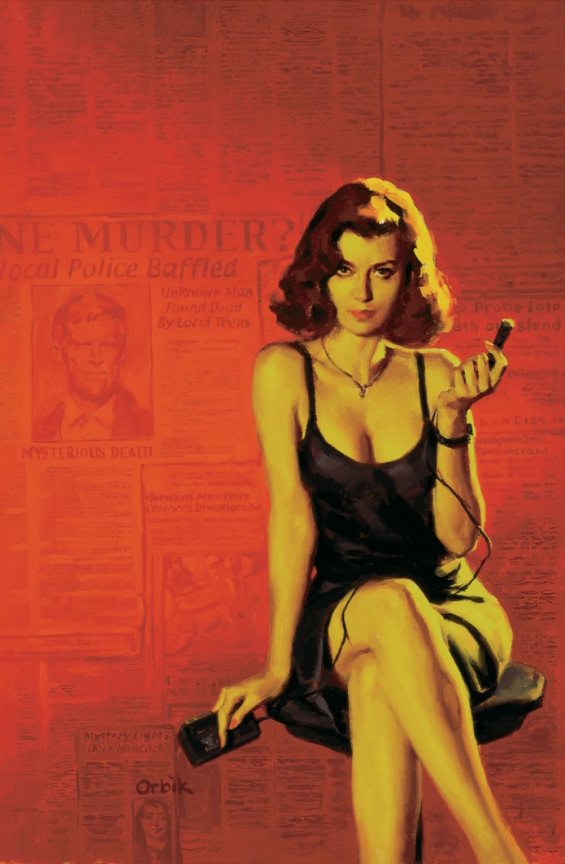

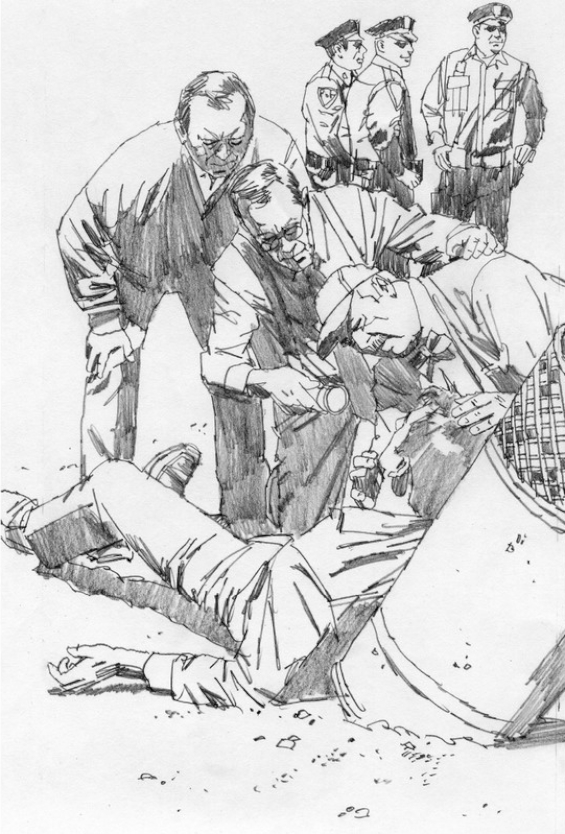
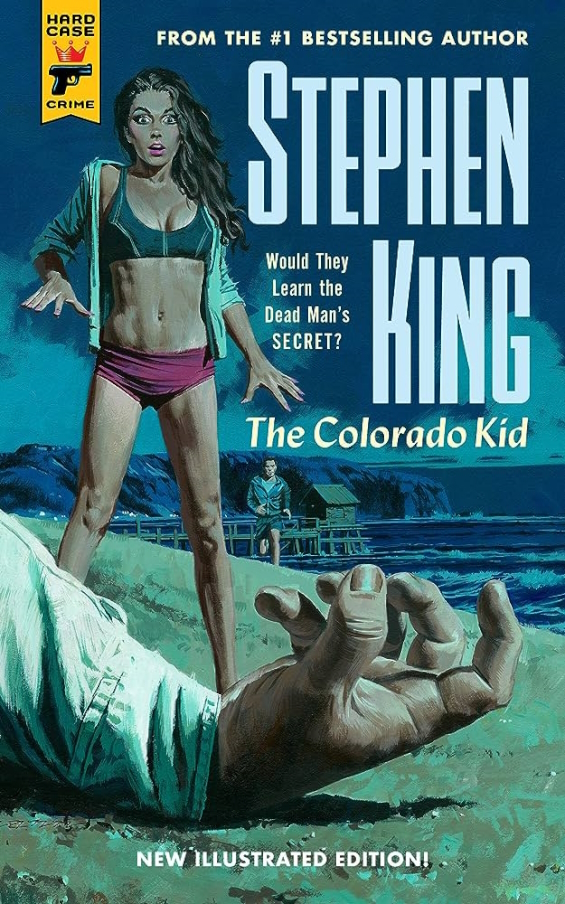


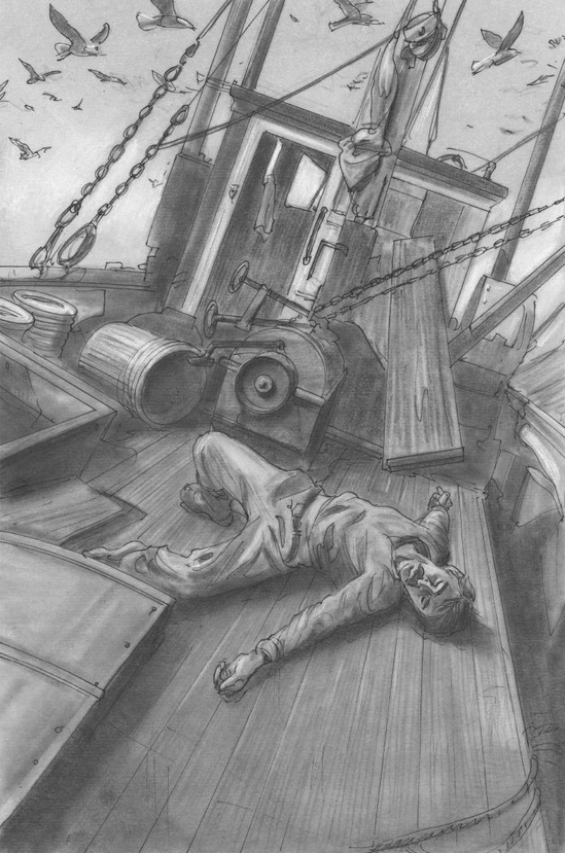

Posted by Jesse WillisBecome a Patron!


 Reading, Short And Deep #292
Reading, Short And Deep #292

